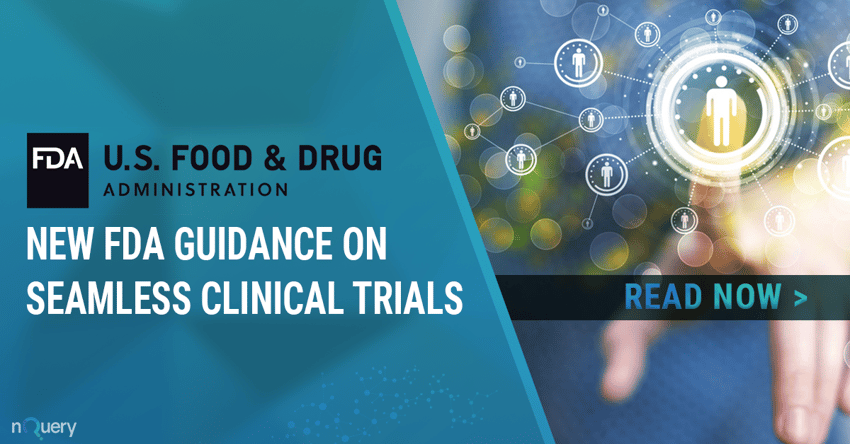The FDA recently published draft guidance regarding seamless trials that it believes will help accelerate drug development without compromising patient safety in the area of oncology. Below is a quick summary of this guidance.

The new guidance Expansion Cohorts: Use in First-In-Human Clinical Trials to Expedite Development of Oncology Drugs and Biologics Guidance for Industry details the latest iteration of the FDA’s move towards the broadening acceptance of seamless trials. This means sponsors will be able to reduce the time and cost associated with drug development.
The purpose of the guidance is to provide advice to sponsors regarding the design and conduct of first-in-human (FIH) clinical trials intended to efficiently expedite the clinical development of cancer drugs, including biological products, through multiple expansion cohort trial designs. These are trial designs that employ multiple, concurrently accruing patient cohorts where individual cohorts assess different aspects of the safety pharmacokinetics and anti-tumor activity of the drug.
“We’ve outlined how drug developers can use an innovative seamless trial design in early stages of oncology drug development.
Specifically, the first time a new medicine is tested in humans – that compresses the traditional three phases of trials into one continuous trial, called an expansion cohort trial”
- FDA Commissioner - Scott Gottlieb -
Under this premise, sponsors can investigate various aspects of the new drug in a single seamless clinical trial while only enrolling the minimum number of study participants necessary to obtain this information. It is hoped that expansion cohort trials can bring efficiency to drug development, potentially reducing development costs and time.
The FDA also recognizes that the use of adaptive trials does not come without risk. The guidance provides FDA’s recommendations regarding:
- Which drugs are best suited for a multiple expansion cohort trial
- How to structure and what to include in a new drug application submissions to support the design of individual expansion cohorts
- When to make contact with the FDA in relation to planning and conducting multiple expansion cohort studies
- What safety procedures need to be in place to protect patients enrolled in these expansion cohort studies.
The FDA requests your feedback
The draft guidance is intended to serve as advice and as the starting point for discussions between FDA, pharmaceutical sponsors, the academic community and the public. The FDA is encouraging all stakeholders to submit feedback on the latest guide. Interested parties can submit feedback by clicking below.
SUBMIT FEEDBACK HERE >















